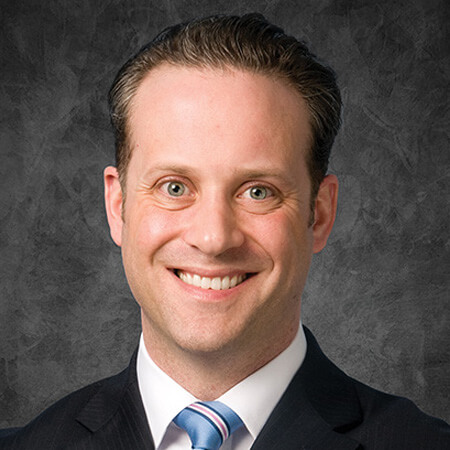When can you enjoy everything you’ve worked for?
Welcome to a different kind of wealth management in Hockessin
We get you to think about money like you’ve never thought about it before
Has rolling up your sleeves, working hard, and building success always been part of your DNA? Then we believe Mercer Advisors is the wealth management firm for you.
Because we’re here to help you keep building on that success. But at the same time, we fundamentally believe there’s a point in life where the wealth-builder in you deserves to become the wealth-enjoyer of all you’ve attained.
We’re built differently
Because to us, helping you protect and grow your wealth is about much more than just your investment portfolio
Of course, a well-managed investment portfolio is the cornerstone to building wealth. And we strive to do that exceptionally well.
But if returns are your sole focus, those returns can quickly be offset by what happens in the other parts of your financial life. Like not preparing for major taxable events, having an incomplete estate plan, a retirement plan that’s on autopilot, or a less than ideal business succession strategy.
So, unlike most firms, we have expertise across financial planning, investing strategy, tax and estate planning, trust services, insurance coverage, and more. With specialists across each of these areas communicating with each other about you, and with you.
Put simply, we help oversee and connect all the dots of your financial life.
Meet our talented wealth advisors in the Hockessin area
They’re here to help you connect all your financial dots
Bill Starnes
Sr. Wealth Advisor

Bill Starnes
Sr. Wealth Advisor
CFP®, ChFC®, MST
Bill is passionate about coordinating the tax, investment, and financial pieces in a way that fosters financial security. He places significant emphasis on retirement readiness, since this is one of life's biggest transitions. Bill began his financial career in 1998 providing comprehensive wealth management to his clients. Prior to joining Mercer Advisors, he founded Mallard Advisors, LLC and served as a Senior Advisor there for 20 years. Bill holds a Bachelor of Science degree from Penn State University and a Master’s Degree in Taxation (MST) from Widener University. He is CERTIFIED FINANCIAL PLANNER™ Professional and a has CHARTERED FINANCIAL CONSULTANT® certification. Bill lives in Unionville, Pennsylvania, with his family. Outside of the office, Bill is dedicated to spending quality time with his family and enjoys the exhilaration of mountain biking, the challenge of golfing, and reading.
Daniel M. McDermott
Sr. Wealth Advisor

Daniel M. McDermott
Sr. Wealth Advisor
ChFC®, CFP®, AIF®
Daniel M. McDermott has been providing financial planning advice to individuals and business for more than 30 years. An alumnus of West Chester University, Dan is a CERTIFIED FINANCIAL PLANNERTM professional, Chartered Financial Consultant (ChFC®) and an Accredited Investment Fiduciary (AIF®).
Dan’s responsibilities include managing the firm’s financial planning and wealth management, providing an assessment of the client’s current situation, and implementing specific action steps for the attainment of their goals. Dan works directly with clients to identify their goals and needs. He continuously monitors their investment portfolio and financial planning details to ensure that his client’s objectives are being met. He strives to put himself in his clients’ shoes and see things from their perspective, with the ultimate goal being the achievement of his clients’ personal and financial dreams.
Dan resides in Wilmington with his wife, Joanie, and their three children.
Rachel Roach
Financial Planner

Rachel Roach
Financial Planner
Rachel began her financial career in 2018 providing client support services to the wealth management clients of Mallard Advisors, which was acquired by Mercer Advisors in 2022. Rachel graduated with a Bachelor of Science degree from the University of Delaware's Financial Planning and Wealth Management program. She is passionate about assisting clients reach their financial goals in the most efficient and effective manner. Rachel’s duties include meeting preparation and ensuring post-meeting client and advisor tasks are completed within an appropriate time frame. Rachel aspires to earn the CERTIFIED FINANCIAL PLANNER™ certification so she can help others learn about the importance of money management. Helping clients understand the complexity of personal finance and creating a sound and personalized financial plan is important to Rachel. Rachel lives in Maryland and is an avid hiker.
Marie Levinsky
Sr. Client Service Specialist

Marie Levinsky
Sr. Client Service Specialist
Marie began her career in the financial industry over 20 years ago and has held various client support roles. She understands the importance of building strong client relationships and is excited about this new opportunity. Marie graduated magna cum laude from Wilmington University with a Banking and Finance degree. Marie lives in Wilmington with her husband and three children.
Christina Crawford
Client Service Specialist

Christina Crawford
Client Service Specialist
Brian Picariello
Managing Director

Brian Picariello
Managing Director
CPA/PFS, CFA
Brian began his wealth management career in 1995 at Arthur Anderson & Co. as a tax accountant. His areas of expertise include financial planning, income tax planning, estate planning, and risk management strategies for high net worth individuals and their families. Prior to joining Mercer Advisors, Brian worked as a wealth strategist at Merrill Lynch and most recently as a wealth advisor at Traust Sollus Wealth Management. He graduated from Albright College with a Bachelor of Science in Accounting as well as Rutgers School of Business, where he earned an MBA with a concentration in finance.
Rodney Alvarado
Regional Vice President

Rodney Alvarado
Regional Vice President
With more than twenty years of wealth management and financial planning experience, Rodney is passionate about developing new client relationships. Prior to joining Mercer Advisors, Rodney was a Market Director for JP Morgan Chase where he led a team of advisors helping them develop their planning and investment portfolio skills. He started his career at Fidelity Investments as a financial planning consultant, where he helped clients develop a comprehensive plan to reach their financial goals. Later he worked at Charles Schwab as a financial consultant where he continued to work with high-net-worth families with complex needs, charitable giving, and trust accounts. Rodney earned his BA from Fordham University and holds the CERTIFIED FINANCIAL PLANNER™ certification, in addition to the FINRA Series 66 license. Rodney lives in New Jersey with his wife and two young children.
Edward Dunphy
Regional Vice President

Edward Dunphy
Regional Vice President
Ed began his career in the Financial Services Industry in 2004. Prior to Joining Mercer, he spent most of his career with TD Ameritrade providing wealth solutions for high-net-worth clients as a Senior Financial Consultant before becoming a Branch Manager in New York City. Ed’s strong financial planning background stems from his time as a Financial Advisor with Ameriprise Financial and expanded as an Account Executive with Fidelity Investments. He graduated from The University of Delaware with a Bachelor of Science in Business Administration and holds the FINRA Series 66 license. Ed is a competitive endurance athlete where he has earned such honors as All World Athlete for his Ironman triathlon competitions. Ed resides in Massapequa Park, NY with his wife, Megan, and their son Keegan.
Kevin Dillon
Regional Vice President

Kevin Dillon
Regional Vice President
CFP®, CRPC®
Kevin has been helping high-net-worth families manage their wealth since 2005. Prior to joining Mercer Advisors, Kevin worked as a wealth management advisor at TIAA-CREF where he specialized in the distinct needs of those working in the academic, research, medical, and cultural fields. He graduated from Loyola University in Maryland with a degree in International Business, and studied abroad at the International School for Economics in Rotterdam. Kevin holds the FINRA Series 66 License. He currently resides in Havertown, Pennsylvania with his wife, Ellie, and their three boys, Braeden, Christian and Andrew.
Charlene Maruska
Sr. Manager, Client Service

Charlene Maruska
Sr. Manager, Client Service
Charlene has over thirty years of diversified administrative services experience. She joined Traust Sollus Wealth Management as a Senior Administrator in 2011, and joined Mercer Advisors in 2018 via Mercer Advisors’ acquisition of Traust Sollus. Prior to joining Traust Sollus, Charlene was the Assistant to the President & CEO and Administrative Services Manager at Robert Wood Johnson University Hospital Hamilton. She has handled matters of complexity and confidentiality and possesses a strong customer service ethic. She enjoys sunrises and sunsets on the beach and spending time with her family.
We’ll team you up
with one of our talented wealth advisors who’ll help you connect all your financial dots
We’ll touch base to discuss your individual needs so that we can connect you with a wealth advisor who’s right for you.
By submitting this information, you are selecting to receive promotional communications from the Mercer Advisors team.
Please Note: The achievement of any professional designation, certification, degree, or license should not be construed by a client or prospective client as a guarantee that he/she will experience a certain level of results or satisfaction if Mercer Advisors is engaged, or continues to be engaged, to provide investment advisory services.